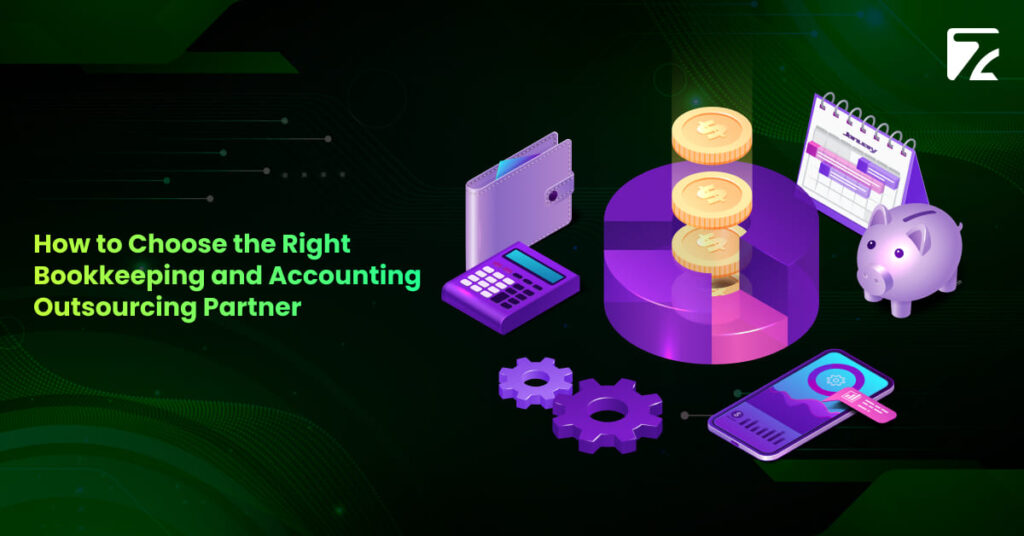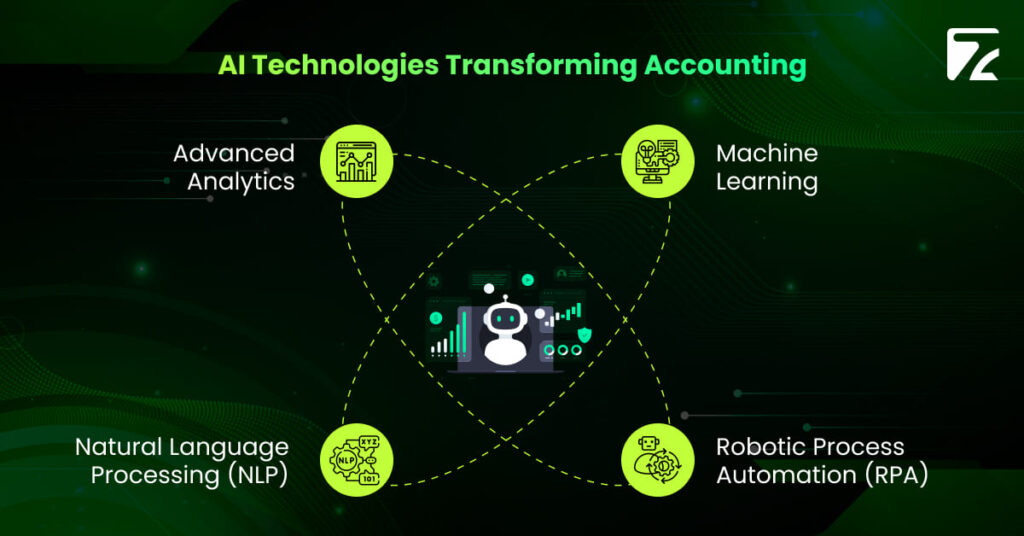How to Choose the Right Bookkeeping and Accounting Outsourcing Partner

How to Choose the Right Bookkeeping and Accounting Outsourcing Partner: A Step-by-Step Guide Outsourcing bookkeeping and accounting has become a strategic move for businesses looking to reduce operational costs, streamline financial processes, and improve accuracy. With accounting complexities and evolving tax regulations, business owners must focus on selecting the right outsourcing partner to maintain compliance, financial health, and scalability. A poor outsourcing decision can lead to financial mismanagement, data breaches, and compliance penalties. According to a Deloitte survey, 59% of companies outsource to cut costs, while 57% seek improved focus on core business functions. This guide will walk you through a step-by-step process to evaluate, compare, and select the best bookkeeping and accounting outsourcing partner that aligns with your business goals. Why Outsourcing Bookkeeping and Accounting is a Game-Changer Cost Savings Hiring an in-house accountant can be expensive, especially for startups and small businesses. According to Glassdoor, the average salary of an in-house accountant in the U.S. is $60,000 per year, excluding benefits. Outsourcing can reduce costs by 30-50%, providing expert financial management without overhead expenses. Improved Compliance and Accuracy Accounting errors can cost businesses thousands of dollars. A study by the Association of Certified Fraud Examiners (ACFE) found that small businesses lose 5% of their revenue annually due to fraud and accounting mistakes. An experienced outsourcing partner ensures tax compliance, accurate financial statements, and timely filings. Scalability and Flexibility As your business grows, financial management becomes more complex. Outsourcing allows businesses to scale services up or down based on requirements without the hassle of hiring or training employees. Step-by-Step Guide to Choosing the Right Outsourcing Partner Step 1: Define Your Business Needs Before searching for an outsourcing partner, outline your financial requirements. Every business has different needs Service Type When You Need It Basic bookkeeping (invoicing, bank reconciliation) Small businesses managing daily transactions Payroll processing Businesses with employees requiring monthly payroll management Tax compliance Companies needing tax preparation and filing support Financial forecasting Businesses seeking long-term financial planning insights Understanding your pain points will help you select a service provider that aligns with your financial goals. Step 2: Assess Industry-Specific Experience Industry-specific knowledge is critical when outsourcing accounting. A restaurant has different accounting needs compared to a tech startup or an e-commerce business. Retail & E-commerce: Requires sales tax automation, inventory tracking, and multi-currency transactions. Healthcare: Needs expertise in medical billing, HIPAA compliance, and insurance claim processing. SaaS & Tech Companies: Requires GAAP-compliant revenue recognition and VC funding expertise. How to verify industry experience: Ask for case studies or client testimonials in your industry. Request a demo of their accounting processes. Step 3: Check Compliance & Certifications Your outsourced partner must comply with local and international accounting standards: Zeal Connect Table Regulation Applicable To GAAP (Generally Accepted Accounting Principles) U.S. businesses IFRS (International Financial Reporting Standards) Global companies SOX (Sarbanes-Oxley Act) Public companies GST/VAT/TDS Compliance Businesses dealing with indirect taxes Look for firms with certified professionals, such as CPA (Certified Public Accountant) CA (Chartered Accountant) ACCA (Association of Chartered Certified Accountants) Pro Tip: If the firm does not provide compliance proof, that’s a red flag. Step 4: Evaluate Technology & Security Standards A top-tier outsourcing firm should leverage modern accounting software and prioritize security. Cloud Accounting Tools: QuickBooks, Xero, Zoho Books, Sage Automated Workflows: AI-powered bookkeeping tools for efficiency Multi-Factor Authentication (MFA): Enhances data security Data Security Red Flags: No encryption protocols for sensitive financial data. No backup policies or disaster recovery plans. Step 5: Compare Pricing Models & ROI Outsourcing shouldn’t just be affordable it should provide value. Here’s a cost comparison Zeal Connect Table Service Type In-House Cost (Annual) Outsourced Cost (Annual) Full-time accountant $60,000+ $15,000 – $40,000 Payroll processing $10,000 $3,000 – $8,000 Tax compliance $5,000+ $1,500 – $5,000 Step 6: Review Client Testimonials & Case Studies Reputation matters. A firm’s track record says a lot about its reliability. Where to check credibility? Google Reviews & Trustpilot Ratings LinkedIn Recommendations Case studies on their website Red Flags: No case studies available Too many negative reviews Step 7: Communication & Support Standards Bookkeeping and accounting require constant communication. Does the firm offer 24/7 support? Do they assign a dedicated account manager? Are they responsive to inquiries? Poor communication leads to missed deadlines and financial errors. Red Flags to Watch Out For Zeal Connect Table Red Flag Why It’s a Problem No transparent pricing Unexpected costs could arise No service-level agreements (SLAs) No commitment to service quality No data security protocols Risk of financial fraud Conclusion Choosing the right bookkeeping and accounting outsourcing partner is a strategic decision that impacts your business’s financial health. By evaluating industry experience, compliance, technology, pricing, and client reviews, you can make an informed decision. Want a deeper dive into outsourced accounting and bookkeeping? Explore our complete guide to bookkeeping and accounting outsourcing to see how it can streamline your finances. Frequently Asked Questions What’s the difference between bookkeeping and accounting? Bookkeeping focuses on recording financial transactions, while accounting involves financial analysis, tax compliance, and reporting. How much does it cost to outsource accounting? Pricing varies, but businesses typically spend $500-$5,000 per month, depending on the services required. How do I ensure my outsourced partner follows compliance regulations? Ensure they have CPA, CA, or ACCA certifications and follow GAAP or IFRS standards. Is outsourcing bookkeeping safe? While exact timelines vary, many firms report visible ROI like reduced error rates and faster closings within six months of implementation. A well-planned rollout and phased integration cYes, as long as your provider follows data encryption, multi-factor authentication, and GDPR compliance. an shorten the time to value.
The Future of AI in Accounting: How Outsourcing Firms Are Leveraging Automation

The Future of AI in Accounting: How Outsourcing Firms Are Leveraging Automation Why AI Matters More Than Ever in Accounting Have you ever wondered why AI is generating so much buzz in the accounting sector? It all boils down to speed, accuracy, and strategic insight. Traditional accounting processes, even when computerized, require significant manual intervention. AI-powered systems, on the other hand, can rapidly scan through data, identify anomalies, and even predict future trends with a high degree of accuracy. Data Explosion: We live in a world where transactional data is growing exponentially. AI helps manage and analyze this data, transforming raw numbers into meaningful, actionable insights. Competitive Edge: Firms that harness AI often see shorter closing cycles, reduced error margins, and more informed decision making an unbeatable advantage in a hyper competitive market. Cost Savings: By automating repetitive tasks, companies save on human labor costs and benefit from quicker turnaround times. Put simply, AI is the new backbone of progressive accounting cutting through the noise to deliver precision and insight. How AI Has Evolved in Financial Services Before diving into the specifics of accounting, let’s take a brief look at how AI has matured in the broader finance sector: Early Automation (1990s-2000s): Think of rudimentary Optical Character Recognition (OCR) software that turned scanned receipts into text. It was a step forward but still required plenty of human checks. Big Data and Machine Learning (2010s): As data volumes exploded, AI algorithms and machine learning techniques gained traction. Predictive models for stock trading and loan approval became mainstream. Integrated AI Solutions (Present): We now see all-in-one platforms that can handle everything from invoice processing to advanced financial analytics, often via cloud-based solutions that deliver real-time insights. This evolution highlights a move from narrow, rule-based systems to more flexible, learning-based technologies that seamlessly integrate across multiple financial functions. Key AI Technologies Powering the Accounting Revolution Machine Learning (ML) Machine Learning algorithms excel at pattern recognition and predictive analytics. For instance, an ML-powered tool can analyze years of financial statements to forecast next quarter’s revenue. This frees accountants from spending days sifting through spreadsheets and allows them to focus on strategic advisory. Robotic Process Automation (RPA) RPA uses software “bots” to handle repetitive tasks like data entry or reconciliation. Unlike ML, which learns from data sets, RPA follows a set of predefined workflows. Imagine an RPA bot logging into multiple accounting systems, comparing invoice details, and flagging discrepancies 24/7 without a single coffee break. Natural Language Processing (NLP) NLP systems can interpret human language in documents, emails, or chat interactions. In accounting, this could mean quickly parsing a 50-page contract to identify financial clauses or automating client inquiries about their latest balance sheet. This significantly reduces the need for manual reviews and improves response times. Advanced Analytics Analytics platforms, often embedded with AI capabilities, transform raw data into visual dashboards and actionable insights. Advanced analytics can also incorporate sentiment analysis, risk scoring, and what-if scenarios, allowing finance teams to preempt potential issues and make proactive decisions. The Outsourcing Advantage: Why Firms Are Going Global Cost-Effectiveness and Talent Pool Outsourcing has traditionally been about cost reduction, but that’s just the tip of the iceberg. Today, outsourcing firms have access to global talent trained in cutting-edge AI platforms. This synergy means businesses get Expertise in niche AI applications (like compliance auditing or CFO advisory) Scalability, especially during peak seasons like tax filing Lower overheads, removing the need to invest heavily in in-house AI infrastructure Focus on Core Competencies By handing off accounting tasks especially those that are time-consuming yet essential, to outsourcing firms, companies can ocus on their core strengths. If you’re a tech startup, you want your in-house team working on product innovation, not reconciling accounts for hours on end. Rapid Implementation of AI Outsourcing firms often stay ahead of the technological curve to remain competitive. Their existing AI frameworks and toolkits can be quickly integrated into a client’s workflow, reducing the time to market for AI-driven initiatives. AI in Action for Accounting Outsourcing Multi-Jurisdictional Compliance Consider a mid-sized e-commerce retailer selling products across the globe. Different regions have varying tax rules and financial regulations. An AI-enabled outsourcing partner can automate regional tax calculations, compile necessary documents, and ensure compliance all in real-time. Fraud Detection for Global Transactions When operating across borders, the risk of fraudulent activities skyrockets. AI models can scrutinize thousands of transactions per second, spotting unusual patterns or suspicious vendor activities. The moment a red flag appears, the system alerts human auditors to investigate further. CFO Advisory and Forecasting Some outsourcing firms go beyond basic bookkeeping to offer CFO-level advisory. With AI-driven forecasting tools, they provide scenario-based strategic insights. For example, “If you expand your product line in Europe, here’s how your EBIT might change over the next three years.” These advanced analytics turn raw data into forward-looking strategies. Risk Management and AI Governance Structured AI Governance Model A robust governance framework outlines who is responsible for AI decisions, how models are tested, and what metrics define success or failure. This includes Steering Committees: Senior leadership that sets strategic goals for AI. Operational Teams: Data scientists and auditors who monitor AI performance daily. Compliance Officers: Ensuring regulatory alignment across global operations. Cybersecurity and Data Protection AI systems rely heavily on sensitive financial data. Inadequate security measures can lead to breaches with massive legal and reputational consequences. Best practices involve: Encryption of Data at Rest and in Transit Two-Factor Authentication for System Access Regular Vulnerability Assessments and Penetration Tests Strict Access Controls and Role-Based Permissions Transforming the Role of Accountants From Bean Counters to Strategic Advisors Accountants are no longer confined to spreadsheets. With AI handling the heavy lifting of data crunching, accountants can Advise on Mergers and Acquisitions: By interpreting AI-generated financial health indicators. Perform Real-Time Audits: Focus on exceptions and higher-level analysis rather than day-to-day transactions. Offer Insightful Advisory Services: Turning raw numbers into meaningful forecasts and investment strategies. Emotional Intelligence and Soft Skills Emotional intelligence is increasingly vital. Clients
